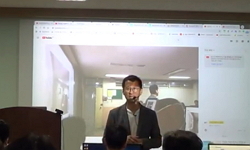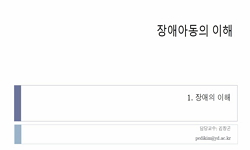Data is a key factor in the 4th Industrial Revolution era, and new value creation possibilities and global competitiveness depend on the data use environment and capabilities. The personal-related data are also subject to protection as personal inform...
http://chineseinput.net/에서 pinyin(병음)방식으로 중국어를 변환할 수 있습니다.
변환된 중국어를 복사하여 사용하시면 됩니다.
- 中文 을 입력하시려면 zhongwen을 입력하시고 space를누르시면됩니다.
- 北京 을 입력하시려면 beijing을 입력하시고 space를 누르시면 됩니다.

데이터 주도 혁신 시대의 개인정보자기결정권 ― 정보통신망법과 EU GDPR의 동의 제도 비교를 통한 규제 개선방향을 중심으로 ― = The Constitutional Right to Informational Self-Determination in the Era of Data-driven Innovation — Focused on the Improvement of Regulations through Comparison of the IT Network Act and the EU GDPR —
한글로보기부가정보
다국어 초록 (Multilingual Abstract)
Data is a key factor in the 4th Industrial Revolution era, and new value creation possibilities and global competitiveness depend on the data use environment and capabilities. The personal-related data are also subject to protection as personal information. It is essential that, in principle, the prior consent is essential to the use of data. This consent is based on the constitutional right to informational self-determination.
By the way, the right to informational self-determination tends to be absolute. Therefore, if you do not obtain prior consent, as the core of personal information protection regulations that specify the constitutional right to informational self-determination, the availability of data is effectively blocked. However, the development of big data, the Internet of Things, and artificial intelligence technologies will be limited by this prior consent regime. It is time to harmonize the use of data with the protection of personal information.
This paper examines the nature and limitations of personal information self-determination rights in order to provide direction for harmony and to find out a basis to improving privacy regulations through the EU GDPR consent system. First, since informational self-determination and privacy protection are both problematic, the right to self-determination and the protection of privacy should be considered simultaneously. Therefore, on the basis of the judicial logic of informational self-determination, it is necessary to evaluate the interests of the state or the judiciary according to the jurisprudence of privacy, while respecting the self-determination of the information subject. Second, the focus of privacy regulation has been on the collection stage of personal information. At the collection stage, the purpose of the personal information collected is specified. However, it is more important how personal information is used and how it affects the subject of information than whether it is based on consent. It is necessary to shift the focus of privacy regulations on data uses and impact, and risk management approach areas. Third, the system of prior consent is not the only correct proposition, as the basic setting of personal information self-determination assumes the ability of the data subjects to make rational decisions. Rather, given these abilities, an information subject can control his or her personal information sufficiently with an opt-out basis. Depending on the circumstances and importance, data collection and utilization based on prior consent and opt-out basis should be mixed. Fourth, we need to think about privacy regulations considering the behavior of the information subjects. Data subjects are fundamentally indifferent about the purpose for which personal information is collected and used, and exercise consent in such indifference situations. However, the right of consent is the most powerful source to the business and the basis of immunity. Therefore, it is reasonable to mix the prior consent and opt-out basis, considering the consent exercise behaviour of the information subjects when sufficient information is given.
국문 초록 (Abstract)
데이터는 4차 산업혁명 시대의 핵심적인 원료이다. 데이터 이용은 산업발전과 새로운 가치창출의 촉매이다. 동시에 개인과 관련성이 있는 데이터는 개인정보로서 보호의 대상이기도 하다. ...
데이터는 4차 산업혁명 시대의 핵심적인 원료이다. 데이터 이용은 산업발전과 새로운 가치창출의 촉매이다. 동시에 개인과 관련성이 있는 데이터는 개인정보로서 보호의 대상이기도 하다. 데이터의 이용을 위해서는 원칙적으로 정보주체의 사전동의(opt-in)가 필수적이다. 이러한 동의제도는 헌법상 개인정보자기결정권에 근거하고 있다.
그런데 개인정보자기결정권이 절대시되는 경향이 있다. 이에 따라, 개인정보자기결정권을 구체화한 개인정보보호규제의 핵심인 사전동의를 받지 않으면 데이터의 이용가능성이 사실상 봉쇄된다. 그러나 빅데이터, 사물인터넷, 인공지능 기술 등은 사전동의 제도로 인해 큰 제약을 받을 수밖에 없다. 데이터의 이용과 개인정보보호의 조화가 필요한 시점이다.
본 논문은 이러한 조화의 방향을 제시하기 위해 개인정보자기결정권의 본질과 한계를 살펴보고, EU GDPR의 동의제도를 통해 개인정보보호규제의 개선을 위한 단초를 찾고자 하였다. 첫째, 규범조화적인 개인정보보호 규제가 필요하다. 개인정보보호는 개인정보자기결정권과 프라이버시 보호 모두가 중첩적으로 문제가 되기 때문에, 개인정보자기결정권의 법리와 프라이버시 보호 법리가 동시에 고려되어야 한다. 그러므로 개인정보자기결정권 법리에 따라 정보주체가 스스로 보호범위를 설정한 것을 존중하면서도, 프라이버시와 인격권 침해의 법리에 따라 국가나 사법부에 의한 이익형량과 평가도 여전히 필요한 상황이다. 둘째, 개인정보자기결정권에 기반한 개인정보보호 규제의 초점은 그간 개인정보의 수집단계에 있었다. 수집단계에서는 수집 대상인 개인정보의 이용 목적이 특정된다. 그러나 동의에 기초한 개인정보 이용인지 여부보다, 개인정보가 어떻게 이용되고 그 이용으로부터 정보주체에게 어떠한 영향을 미치는 지가 더 중요하다. 개인정보보호 규제의 초점을 이용 중심, 리스크관리 중심으로 전환할 필요가 있다. 셋째, 개인정보자기결정권의 기본설정에 따르면 정보주체는 합리적이고 이성적인 결정을 내릴 능력을 전제한다. 그렇다면, 사전동의 제도만이 올바른 명제는 아니다. 오히려 이러한 능력을 전제하면, 정보주체는 사후거부(opt-out)로도 충분히 자신의 개인정보를 통제할 수 있다. 데이터 이용 상황과 중요성에 따라 사전동의와 사후거부에 따른 데이터 수집ㆍ이용을 안분하면 될 것이다. 넷째, 정보주체의 행태를 고려한 개인정보보호 규제를 고민할 필요가 있다. 근본적으로 정보주체는 개인정보가 어떠한 목적으로 수집되고 이용되는지에 대해 근본적으로 무관심하며, 이러한 무관심 상황에서 동의권을 행사하고 있다. 그런데 동의권은 사업자에게 개인정보 이용의 가장 강력한 권원이자 면책의 근거이다. 따라서 충분한 정보가 주어졌을 때 정보주체의 동의권 행사 행태를 고려하여, 사전동의제와 사후거부제를 혼합하는 방안이 합리적이다.
참고문헌 (Reference)
1 이원우, "현대행정법의 이해: 고 淸江류지태 선생 10주기 기념" 박영사 249-, 2018
2 이원우, "혁신과 규제 : 상호 갈등관계의법적 구조와 갈등해소를 위한 법리와 법적 수단" 법학연구소 9 (9): 7-29, 2016
3 "헌법재판소 2005. 5. 26. 선고 99헌마513 결정"
4 "헌법재판소 2003. 6. 26. 선고 2002헌가14 결정"
5 김선택, "헌법상 인격권의 보장체계와 보호법익 - 헌법재판소판례를 중심으로" 헌법재판소 19 : 489-, 2008
6 한수웅, "헌법상 인격권 – 특히 헌법 제10조의 행복추구권, 일반적 인격권 및 헌법 제17조의 사생활의 보호에 관하여" 헌법재판소 13 : 624-, 2002
7 권영준, "프라이버시 보호의 정당성, 범위, 방법" 사법발전재단 1 (1): 273-331, 2017
8 김태오, "정보통신망법상 개인정보보호 제도의 정책효과 분석" 방송통신위원회 2017
9 국회 과학기술정보통신위원회, "정보통신망 이용촉진 및 정보보호 등에 관한 법률 일부개정안 검토보고서(정부제출)" 2006
10 김태오, "사이버안전의 공법적 기초 - 독일의 IT 기본권과 사이버안전법을 중심으로 -" 행정법이론실무학회(行政法理論實務學會) (45) : 105-134, 2016
1 이원우, "현대행정법의 이해: 고 淸江류지태 선생 10주기 기념" 박영사 249-, 2018
2 이원우, "혁신과 규제 : 상호 갈등관계의법적 구조와 갈등해소를 위한 법리와 법적 수단" 법학연구소 9 (9): 7-29, 2016
3 "헌법재판소 2005. 5. 26. 선고 99헌마513 결정"
4 "헌법재판소 2003. 6. 26. 선고 2002헌가14 결정"
5 김선택, "헌법상 인격권의 보장체계와 보호법익 - 헌법재판소판례를 중심으로" 헌법재판소 19 : 489-, 2008
6 한수웅, "헌법상 인격권 – 특히 헌법 제10조의 행복추구권, 일반적 인격권 및 헌법 제17조의 사생활의 보호에 관하여" 헌법재판소 13 : 624-, 2002
7 권영준, "프라이버시 보호의 정당성, 범위, 방법" 사법발전재단 1 (1): 273-331, 2017
8 김태오, "정보통신망법상 개인정보보호 제도의 정책효과 분석" 방송통신위원회 2017
9 국회 과학기술정보통신위원회, "정보통신망 이용촉진 및 정보보호 등에 관한 법률 일부개정안 검토보고서(정부제출)" 2006
10 김태오, "사이버안전의 공법적 기초 - 독일의 IT 기본권과 사이버안전법을 중심으로 -" 행정법이론실무학회(行政法理論實務學會) (45) : 105-134, 2016
11 윤혜선, "빅데이터 규제의 새로운 패러다임 모색을 위한 연구- 개인정보 보호법제의 한계와 리스크규제체제로의전환가능성에 대한 검토를 중심으로 -" 법학연구소 11 (11): 71-94, 2018
12 "대법원 2016. 8. 17. 선고 2014다235080 판결"
13 채성희, "개인정보자기결정권과 잊혀진 헌법재판소 결정들을 위한 변명" 한국정보법학회 20 (20): 291-328, 2016
14 홍진영, "개인정보자기결정권과 개인정보처리의 자유 충돌의 사법적 해결" 민사판례연구회 (35) : 733-784, 2013
15 권영준, "개인정보 자기결정권과 동의 제도에 대한 고찰" 법학연구소 36 (36): 673-734, 2016
16 황성기, "개인정보 보호와 다른 헌법적 가치의 조화" 법학연구소 5 (5): 20-36, 2012
17 고학수, "개인정보 보호 법제에 관한 국내외 논의의 전개와 주요 쟁점" 서울대학교 금융법센터 (66) : 8-, 2014
18 박광배, "개인정보 관련 법령의 실무적 운영과정에서 드러난 문제점과 개선방향" 사법발전재단 1 (1): 3-48, 2017
19 Geminn, Christian, "„Privatheit“ und „Privatsphäre“ aus der Perspektive des Rechts – ein Überblick" 14 : 703-, 2015
20 Albers, Marion, "§ 22 Umgang mit personbezogenen Informationen und Daten" GVwR 2012
21 Rubenfeld, "We need a new jurisprudence of anonymity"
22 Schwartz, Paul M., "THE EU-U.S. PRIVACY COLLISION: A TURN TO INSTITUTION AND PROCEDURES" 126 : 2012-2013, 1966
23 Ben-Shahar, Omri, "Simplification of Privacy Disclosures : An Experimental Test" 45 : S41-, 2016
24 Klar, Manuel, "Privatheit und Datenschutz in der EU und den USA – Kollision zweier Welten?" 165-, 2016
25 Bull, Hans Peter, "Persönlichkeitsschutz im Internet: Reformeifer mit neuen Ansätzen" 257-, 2011
26 Di Fabio, "Maunz/Dürig, Grundgesetz-Kommentar" 2017
27 "Leitlinien zu automatisierten Entscheidungen im Einzelfall einschließlich Profiling für die Zwecke der Verordnung 2016/679"
28 Bull, Hans Peter, "Informationelle Selbstbestimmung - Vision oder Illusion?" Tübingen 2011
29 Masing, Johannes, "Herausforderungen des Datenschutzes" 2305-, 2012
30 "Guidelines on Consent under Regulation 2016/679"
31 이진규, "GDPR Survival Guide for Korean Controller & Processors"
32 박노형, "EU 개인정보보호법제(GDPR)분석 및 개인정보보호법제 개선 입법수요 연구" 개인정보보호위원회 2016
33 Buchner, Benedikt, "Die Einwilligung im Datenschutzrecht - vom Rechtfertigungsgrund zum Kommerzialisierungsinstrument" 39-, 2010
34 Gallwas, Hans-Ullrich, "Der allgemeine Konflikt zwischen dem Recht auf informationelle Selbstbestimmung und der Informationsfreiheit" 2785-,
35 Radlanski, Philip, "Das Konzept der Einwilligung in der datenschutzrechtlichen Realität" Tübingen 2016
36 "BVerfG, Beschl. v. 23. 10. 2006 -1 BvR 2027/02"
37 "BVerfG, Beschl. v. 10. 10. 2017 - 1 BvR 2019/16"
38 Cate, Fred H., "Artificial Intelligence and Data Protection: Observations on a Growing and Unnecessary Conflict" 151-,
39 권헌영, "4차 산업혁명시대 개인정보권의 법리적 재검토" 한국법학원 158 (158): 7-42, 2017
동일학술지(권/호) 다른 논문
-
- 행정법이론실무학회(行政法理論實務學會)
- 정호경
- 2018
- KCI등재
-
출입국관리법상 입국금지사유와 강제퇴거사유의 조응관계 고찰
- 행정법이론실무학회(行政法理論實務學會)
- 이현수
- 2018
- KCI등재
-
- 행정법이론실무학회(行政法理論實務學會)
- 박현정
- 2018
- KCI등재
-
- 행정법이론실무학회(行政法理論實務學會)
- 김광수
- 2018
- KCI등재
분석정보
인용정보 인용지수 설명보기
학술지 이력
| 연월일 | 이력구분 | 이력상세 | 등재구분 |
|---|---|---|---|
| 2026 | 평가예정 | 재인증평가 신청대상 (재인증) | |
| 2020-11-20 | 학회명변경 | 한글명 : 행정법이론실무학회(行政法理論實務學會) -> 행정법이론실무학회영문명 : Korea Administrative Law And Practice Association(약칭 Kalpa) -> Korea Administrative Law And Practice Association(약칭 KALPA) |  |
| 2020-01-01 | 평가 | 등재학술지 유지 (재인증) |  |
| 2017-01-01 | 평가 | 등재학술지 유지 (계속평가) |  |
| 2013-01-01 | 평가 | 등재학술지 유지 (등재유지) |  |
| 2010-01-01 | 평가 | 등재학술지 유지 (등재유지) |  |
| 2008-01-01 | 평가 | 등재학술지 유지 (등재유지) |  |
| 2005-05-30 | 학술지명변경 | 한글명 : 행정법연구(行政法硏究) -> 행정법연구 |  |
| 2005-01-01 | 평가 | 등재학술지 선정 (등재후보2차) |  |
| 2004-01-01 | 평가 | 등재후보 1차 PASS (등재후보1차) |  |
| 2003-01-01 | 평가 | 등재후보학술지 선정 (신규평가) |  |
학술지 인용정보
| 기준연도 | WOS-KCI 통합IF(2년) | KCIF(2년) | KCIF(3년) |
|---|---|---|---|
| 2016 | 1.61 | 1.61 | 1.39 |
| KCIF(4년) | KCIF(5년) | 중심성지수(3년) | 즉시성지수 |
| 1.31 | 1.37 | 1.384 | 0.57 |





 DBpia
DBpia






